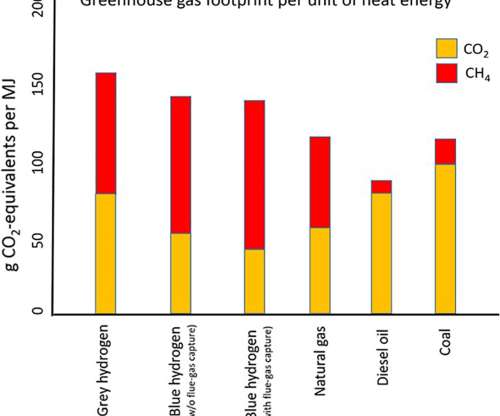Study finds total greenhouse gas footprint of blue hydrogen “quite high” due to fugitive methane
Green Car Congress
AUGUST 13, 2021
“Blue” hydrogen—produced through steam methane reforming (SMR) of natural gas or coal gasification, but with CO 2 capture and storage—is being described as having low or zero carbon emissions. Even if true though, the use of blue hydrogen appears difficult to justify on climate grounds. —Howarth and Jacobson.



























Let's personalize your content